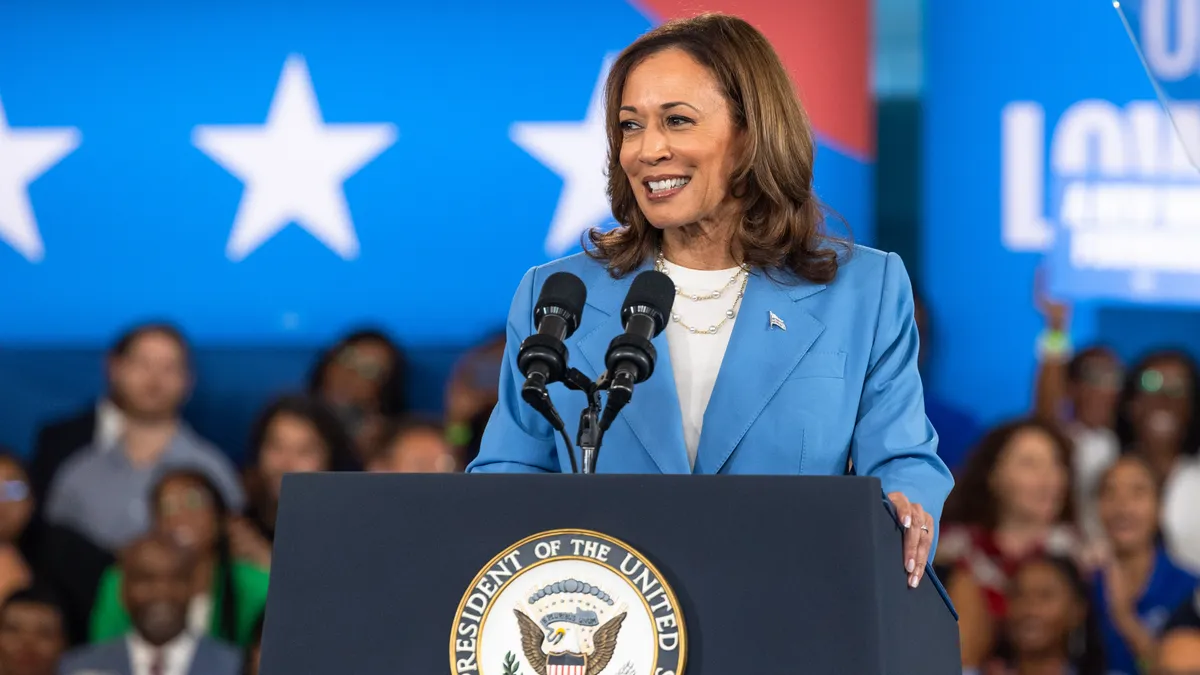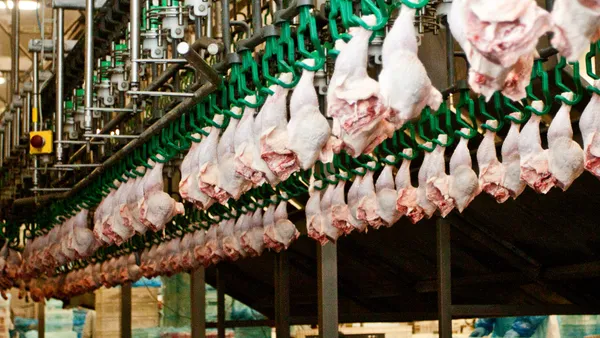The meat and poultry industries are pushing back on Vice President Kamala Harris’ plan to federally ban “price gouging” as grocery costs remain high following the pandemic.
Trade groups such as the Meat Institute and the National Chicken Council called out Harris ahead of her campaign event in Raleigh, North Carolina, on Friday, saying her plan unfairly targets and places the blame on meat and poultry companies for driving inflation.
Although still elevated, food prices are coming down from the highs of the pandemic due to supply and demand factors, said Julie Anna Potts, Meat Institute president and CEO, including bird flu issues, a prolonged shortage of cattle and high input costs.
“A federal ban on price gouging does not address the real causes of inflation,” Potts said in a statement.
As part of her campaign to lower costs for middle-class families, Harris underscored the importance of driving down grocery prices as some of the largest food companies see their highest profits in two decades.
While supply chains have largely recovered, prices for food staples like ground beef and a loaf of bread remain 50% higher than they were before the pandemic, she said during her speech.
“I know most businesses are creating jobs, contributing to our economy, and playing by the rules, but some are not, and that’s just not right, and we need to take action when that is the case,” Harris said at a rally in Raleigh.
To ensure lower costs, Harris, if elected, committed to passing the first-ever federal ban on price gouging for food items, including penalties for “companies that exploit crises and break the rules” and policy that supports small businesses “trying to play by the rules.”
Building on efforts to combat anti-competitive practices with President Joe Biden, Harris said she will continue working to make the food industry less consolidated in hopes of driving down prices for Americans. In June, the Agriculture Department proposed a new rule clarifying how it will enforce competition rules in the meat and poultry industries that aim to ensure fairer markets and lower food costs.
Agriculture Secretary Tom Vilsack declined to comment on Harris’ plan, Progressive Farmer reported. But Vilsack said he was happy with the partnership between the USDA and Justice Department in cracking down on potential antitrust violations.
The USDA is nearing completion of a retail study that will “raise some valid questions and issues about practices within the industry that will ultimately impact and affect the price that people pay,” Vilsack said, according to Progressive Farmer.
Meanwhile, industry trade groups are defending themselves against the political rhetoric they claim is being used against them.
“It’s time for this administration to stop using the meat and poultry industry as a scapegoat and a distraction for the root causes of inflation and the significant challenges facing our economy,” Gary Kushner, interim president of the National Chicken Council, said in a statement.











